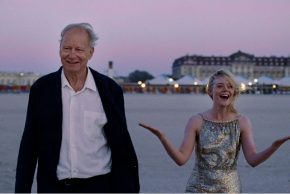Article: Győző Nagy
Translation: Nóra Fehér
Now in his seventy-third year, ten-time Grammy-winning Latin jazz genius Arturo Sandoval, whose life is rich in stories and notes, was the subject of a film in 2000, but his musicianship has lost none of its vitality, just as vibrant as it was decades ago.
So it’s time for a second part…
But at the very beginning, it didn’t look as if anyone outside his immediate circle would recognise the name of the boy, who was born in Artemisa, 50 kilometres from Havana. Growing up in staggering poverty, Arturo’s family had no musicians, so it came as something of a surprise when the boy replied to the question “What will you be when you grow up?” with the answer: a trumpet player! Arturo’s teacher, an old man from the neighbourhood, was not very forthcoming and quickly gave the boy away, claiming he would never be a proper musician, but legend has it that Arturo then relented and blew his instrument in the shade of a mango tree by the road until it sounded. Of course, it was a long way from a sore mouth to world fame, all the more so because the genre of jazz that the young man adored was long regarded by the officials of his native country as a myth that embodied the free narcissism of imperialism, so much so that Sandoval, who was serving his mandatory thirty-six months of conscription, was imprisoned when he was caught listening to the Voice of America’s jazz show in secret.
In 1973, the lean years came to an end (for the first time) when pianist Chucho Valdes revived the cult band Irakere, alive and active to this day, and invited Arturo, by then already a major talent, to play trumpet. Irakere revolutionised Cuban music – and Latin music in general – by combining elements of folk music and AfroCuban rhythms with jazz and rock and roll (now with permission), with worldwide success. Noisy acclaim and foreign tours followed, and our hero, posing as a chauffeur, was able to meet and, what’s more, make lifelong friends with his own hero, the mentor and mentor extraordinaire Dizzie Gillespie. The latter played an active role in Sandoval, who had been voted Cuba’s best musician several times, following in the footsteps of many other artists, including his former Iraqi bandmate, saxophonist Paquito D’Rivera, when he left his band on tour abroad in 1990 to seek asylum at the US embassy.
In fact, the defection opened the door to a second career opportunity for the virtuoso trumpeter: the freedom to choose his style, venue and partner, free from the dictates of the powers that be, was a true musical fulfilment. He has played with world-famous and not so well known musicians, with standard and experimental groups, classics and bebop, covers and originals – the point was to make music. In fact, it was the icing on the cake that, in addition to touring and recording, he found time to open his own jazz club in Miami in 2006, where he took to the world stage at least once a month alongside other greats of the genre. Sandoval, no stranger to the piano, confessed his passion years ago:
“I want people to remember me simply as someone who loved music. Music is everything to me. Whatever appeals to the ear, I listen to with great pleasure, and I long to learn it.”
In 2013, Barack Obama awarded the Medal of freedom to a musician who loves freedom perhaps even more than making music. In addition to his outstanding knowledge of music theory and his courageous improvisational skills, critics have highlighted his astonishing technical ability when writing about him, as well as his vibrant personality, from which no member of his audience can escape.
Get your tickets for his concerts in Győr or Debrecen!
Article: Győző Nagy
Translation: Nóra Fehér

























Comments